
Lauritz Melchior was a Danish-American opera singer. He was the preeminent Wagnerian heldentenor of the 1920s, 1930s, and 1940s and has come to be considered the quintessence of his voice type. Late in his career, Melchior appeared in movie musicals and on radio and television. He also made numerous recordings.
A baritone is a type of classical male singing voice whose vocal range lies between the bass and the tenor voice-types. The term originates from the Greek βαρύτονος (barýtonos), meaning "heavy sounding". Composers typically write music for this voice in the range from the second F below middle C to the F above middle C (i.e. F2–F4) in choral music, and from the second G below middle C to the G above middle C (G2 to G4) in operatic music, but the range can extend at either end. Subtypes of baritone include the baryton-Martin baritone (light baritone), lyric baritone, Kavalierbariton, Verdi baritone, dramatic baritone, baryton-noble baritone, and the bass-baritone.
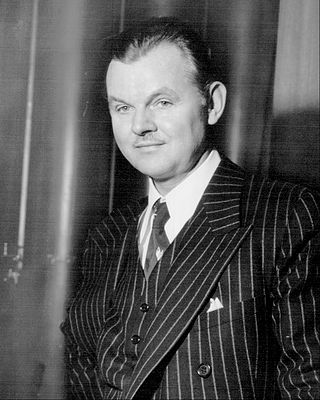
Lawrence Mervil Tibbett was an American opera singer and recording artist who also performed as a film actor and radio personality. A baritone, he sang leading roles with the Metropolitan Opera in New York City more than 600 times from 1923 to 1950. He performed diverse musical theatre roles, including Captain Hook in Peter Pan in a touring show.
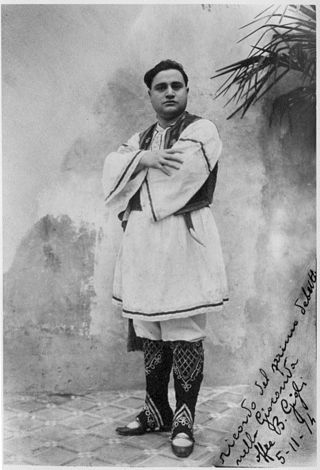
Beniamino Gigli was an Italian opera singer. He is widely regarded as one of the greatest tenors of his generation.
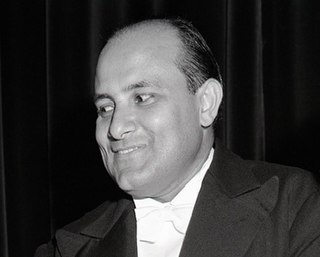
Leonard Warren was an American opera singer. A baritone, he was a leading artist for many years with the Metropolitan Opera in New York City. Especially noted for his portrayals of the leading baritone roles in the operas of Giuseppe Verdi, he had few rival baritones in his time. His power and range were the highlights of his vocal instrument.

Kirsten Malfrid Flagstad was a Norwegian opera singer, who was the outstanding Wagnerian soprano of her era. Her triumphant debut in New York on 2 February 1935 is one of the legends of opera. Giulio Gatti-Casazza, the longstanding General Manager of the Metropolitan Opera said, “I have given America two great gifts — Caruso and Flagstad.”

Antonio Scotti was an Italian baritone. He was a principal artist of the New York Metropolitan Opera for more than 33 seasons, but also sang with great success at London's Royal Opera House, Covent Garden, and Milan's La Scala.

Heinrich Knote was an outstanding German dramatic tenor with an international reputation.
Herbert Janssen was a leading German operatic baritone of the 20th century who had a career in Europe and the United States.
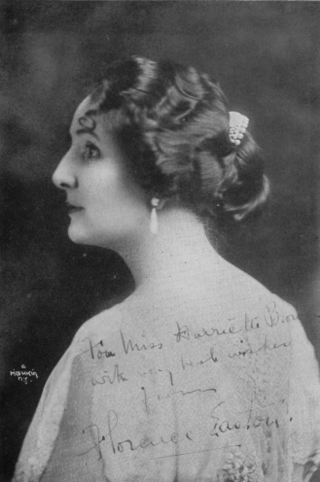
Florence Easton was an English dramatic soprano of the early 20th century. She was one of the most versatile singers of all time, appearing in more than 100 roles, covering a wide range of styles and periods, from Mozart, Meyerbeer, Gounod, Verdi, Wagner, Puccini, Strauss, Schreker and Krenek. She sang virtually every Wagnerian soprano part, large and small, from Senta in Der Fliegende Holländer onwards, including Brünnhilde in Götterdämmerung.
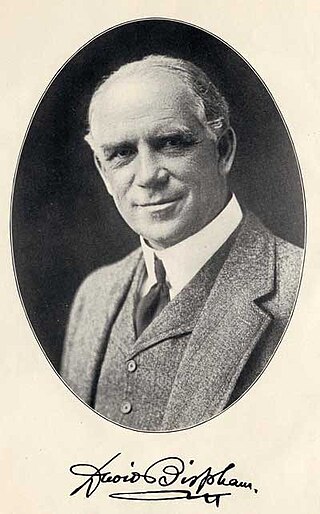
David Scull Bispham was an American operatic baritone.

Anton van Rooy was a Dutch bass-baritone. He had a voice of enormous proportions and is most remembered for his association with the music dramas of Richard Wagner, especially the Ring Cycle, The Mastersingers of Nuremberg and Parsifal.
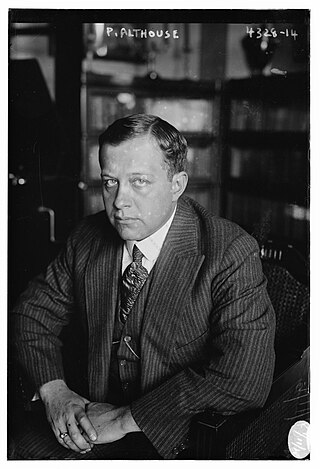
Paul Shearer Althouse was an American opera singer. He began his career as a lyric tenor with a robust Italianate sound, in roles including Cavaradossi in Tosca, Pinkerton in Madama Butterfly, and Turiddu in Cavalleria rusticana. He later branched out into the dramatic tenor repertoire, finding success in portraying Wagnerian heroes. He sang with the Metropolitan Opera in New York City for 30 years.

Andreas Dippel was a German-born operatic tenor and impresario who from 1908 to 1910 was the joint manager of the New York Metropolitan Opera.
Mark Lundberg was an American opera singer who had an active international career from the 1980s up until his sudden death in 2008. He began his career as a bass, then progressed to portraying baritone parts, and finally settled as a dramatic tenor, winning acclaim portraying Wagnerian heroes like Siegfried, Tristan and other standards of the dramatic repertoire. Samson from Saint-Saëns's Samson and Delilah and the title role in Giuseppe Verdi's Otello became "calling cards" for him. Standing at six and a half feet and possessing a big frame and a dark beard, Lundberg made a striking figure on stage. His shoulders measured 6 and a half feet around and the Denver Post once Described as "a big blonde bear of a man", a fitting description for such a large man
Margaret Harshaw was an American opera singer and voice teacher who sang for 22 consecutive seasons at the Metropolitan Opera from November 1942 to March 1964. She began her career as a mezzo-soprano in the early 1930s but then began performing roles from the soprano repertoire in 1950. She sang a total of 39 roles in 25 works at the Met and was heard in 40 of the Metropolitan Opera radio broadcasts. She was also active as a guest artist with major opera houses in Europe and North and South America.

Sigurd Björling was a Swedish operatic baritone.
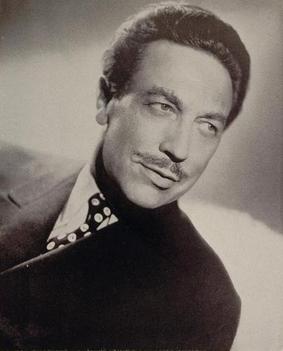
Richard Bonelli was an American operatic baritone active from 1915 to the late 1970s. Although he sang predominantly on stage in both light and grand operas, he also performed at various times on radio, in concerts and films, as well as on television.

Henri Albers, born Johan Hendrik Albers, was a Dutch-born opera singer who later became a French citizen. He sang leading baritone roles in an international career that spanned 37 years and was a prominent singer at the Théâtre de la Monnaie in Brussels and the Opéra-Comique in Paris, which was his base from 1900 until his death. He also sang in 36 performances with the Metropolitan Opera company from 1898 to 1899. He made many recordings for Pathé Records and specialised in the heavier baritone and basso cantante repertoire.
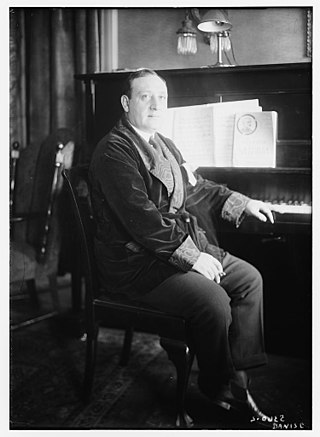
Giuseppe Danise was an Italian operatic baritone. He sang to great acclaim throughout Italy and the Americas, appearing in lyric and dramatic roles from the Italian, French, Wagnerian, and Russian repertoire.
















